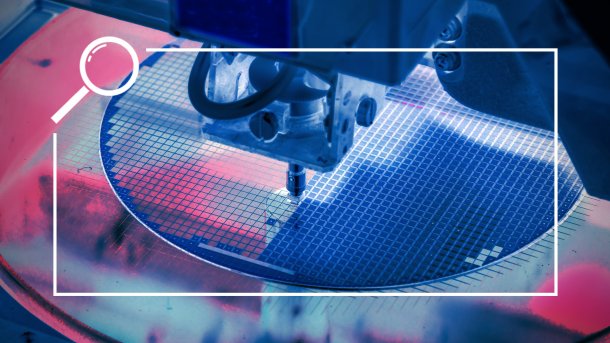Europe's semiconductor target: from unrealistic to almost impossible
The EU wants to produce a fifth of all chips worldwide by 2030. Achieving this target would be nothing short of a miracle.

(Image: Macro photo/Shutterstock.com)
In 2023, the EU had a share of around 10% in the global production of semiconductors. With the EU Chips Act, the EU Commission declared a doubling to 20 percent as a target by 2030. The problem: because many new semiconductor plants are being built worldwide, conservative estimates suggest that the EU would have to quadruple its chip production to achieve the 20 percent market share, and that within the next five to six years.
Even if Intel had completed its two semiconductor plants – so-called fabs – in Magdeburg on time, the EU would hardly be able to reach the 20 percent. With the delay of two years, this is now almost impossible. Series production is not expected to start until 2030 at the earliest and then only reach full capacity in the following years.
Left behind in international comparison
Other projects in the EU include
- Intel's expansion of the Irish fab for 11 billion US dollars
- TSMC's Dresden fab (ESMC) for 10 billion euros
- smaller new builds or expansions of existing fabs, for example at Infineon for 5 billion euros
On the other hand, there are at least
- four new Intel fabs in the USA and massive expansion of the Oregon site for a total of 96 billion dollars
- three new TSMC fabs in the USA for 65 billion dollars
- two new TSMC fabs in Japan for 20 billion dollars
- massive expansion of TSMC's capacity in Taiwan for 120 billion dollars
- massive expansion of Samsung and SK Hynix in South Korea, 427 billion dollars by 2047
- the heavily subsidized expansion of national semiconductor production in China
- capacity expansion of several chip fabs in Malaysia
- the construction of several fabs in India
Videos by heise
Driving force is gone
It was in particular the former EU Commissioner for Internal Market and Services, Thierry Breton, who wanted to boost Europe's chip production. He argued that the EU needed to strengthen its own position in the global semiconductor market in order to be in a better position in negotiations – in addition to secure supply chains in times of crisis.
However, Breton is no longer part of the new EU Commission under Ursula von der Leyen. Even if the successor commission continues to pursue the targets, the 20 percent will be extremely difficult. The construction of various new semiconductor plants would have to begin promptly so that they could produce significant quantities of chips by 2030. We do not believe this will happen.
(mma)